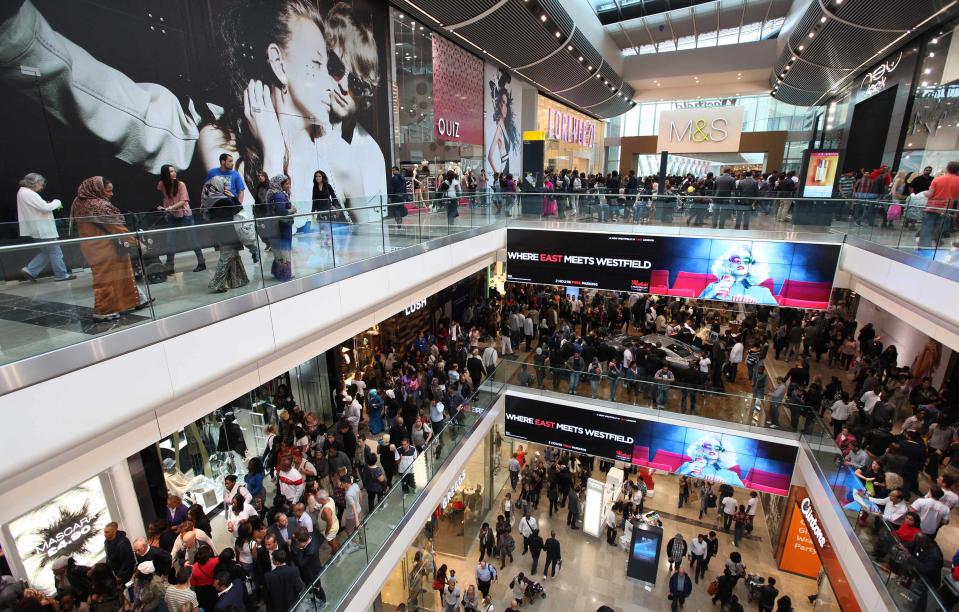£14bn of UK products imported from 'dubious supply chains'

Some £14bn ($18bn) of goods imported into the UK is sourced from “dubious supply chains” according to a new study.
Bolt Burdon Kemp, a national law firm that represents a number of former slaves, said UK businesses sourced £14bn worth of products in 2019 from countries with high risk of modern slavery, based on data from the Global Slavery Index.
The report revealed that the UK clothing industry potentially contributes the most to the modern slave trade, importing £7bn worth of products every year from supply chains in China, Argentina, Brazil among others.
It also showed that computers, phones, coffee and cocoa are the UK's other most dubious imports, with a further £6.7bn of products imported from potentially unethical sources.
Almost three quarters (71%) of UK businesses admitted to not knowing the full details of their supply chain.
Around 40 million people across the world are estimated to be trapped in modern day slavery, while between 10,000 to 13,000 people could be trapped in modern slavery in the UK, based on cases reported to the National Referral Mechanism.
Bolt Burdon Kemp offered tips on how to ensure you buy ethically:
Swap everyday products to alternatives made by slave-free companies, looking for certifications that show commitment to fair working conditions, such as the FAIRTRADE label.
Only use travel agents who have signed up to the Tourism Child-Protection Code of Conduct.
Buy products made by survivors of modern slavery.
Reuse and recycle where possible to reduce demand.
When buying makeup, ensure the companies are in the Responsible Mica Initiative.
The company also advised consumers that if they are buying certain products to keep an eye on their country of origin.
These include agricultural goods (such as sugarcane, cotton, coffee, tobacco, cattle, rice and fish), manufacturing products, (such as bricks, garments, textiles, footwear, carpets and fireworks) and mining or quarrying goods (such as gold, coal and diamonds).
“Victims may have no way out – and some may not even realise they’re being exploited. It’s up to us to be aware of the signs of modern slavery so we can take action to help someone when they need it most. We all need to do our bit to stop this criminal industry in its tracks,” the law firm said.
“Companies that fail to mention problematic products automatically demonstrate a lack of transparency.”
READ MORE: Boohoo sales jump 45% despite Leicester supply chain scandal
It comes after a recent scandal over working conditions in Boohoo’s (BOO.L) supply chain. The Guardian and the Sunday Times exposed poor working conditions and low pay in Leicester factories supplying Boohoo in July.
An independent review into the online retailer concluded that there were “many failings” in the way Boohoo managed its supply chain but said it “did not deliberately allow poor conditions and low pay to exist”, and that it did not intentionally profit from them.
Last month a number of high-profile companies, including Amazon (AMZN), Adidas (ADS.DE), The Walt Disney Company (DIS), Nike (NKE), and Ikea also received letters from MPs over alleged forced labour links.
The Business, Energy and Industrial Strategy (BEIS) Committee wrote to businesses across the fashion, retail and information technology sectors, as it explores the extent to which UK firms are exploiting the forced labour of Uyghur Muslims in the Xinjiang region of China.
It is believed that 1 million Uyghur are being held in internment camps in the northern Chinese province.
The letters included questions around supply-chain transparency, requesting compliance evidence and written feedback on how each company maintains visibility and combats modern slavery within their supply chains.
Watch: H&M cuts ties with Chinese supplier over forced labour allegations

 Yahoo Finance
Yahoo Finance 